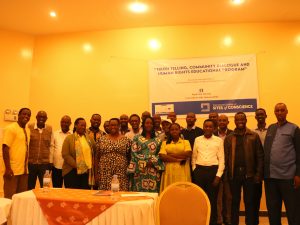 The Marathon stops in Kigali, the Rwandan capital. From the Mahama camp in the east of the country to Kigali, via Huye and Muhanga in the south, the torch of truth, dialogue and respect for human rights will have touched nearly a hundred young people, community leaders and refugees in the four corners of Rwanda.
The Marathon stops in Kigali, the Rwandan capital. From the Mahama camp in the east of the country to Kigali, via Huye and Muhanga in the south, the torch of truth, dialogue and respect for human rights will have touched nearly a hundred young people, community leaders and refugees in the four corners of Rwanda.
On February 15 and 16, the “Forum pour la Mémoire Vigilante” held its final session in a series of eight workshops as part of the Truth Telling, Community Dialogue and Human Rights Educational Program.
This latest interactive seminar was aimed at refugees living in Kigali and Nyamata, an urban center on the outskirts of the Rwandan capital.
“It is more than important to share the truth about Burundi’s history with the community of Burundian refugees living in Rwanda. We want to fight against any generational spirit of vengeance”, reframed the project leader, Mr. Godefroid Sindayigaya, as if to launch the debates, which were in a way stormy and inter-constructive.
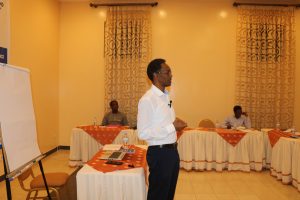 And to enrich the debates, Dr Alphonse Rugambarara, a former Burundian politician who held high state office (minister, parliamentarian and even political prisoner) and was the architect of the Arusha Accords for peace and reconciliation between Burundians in 2000, insisted on truth as well as national unity and reconciliation.
And to enrich the debates, Dr Alphonse Rugambarara, a former Burundian politician who held high state office (minister, parliamentarian and even political prisoner) and was the architect of the Arusha Accords for peace and reconciliation between Burundians in 2000, insisted on truth as well as national unity and reconciliation.
For him, there are three aspects involved.
Identity alienation and its consequences…
He pointed out that identity alienation in Burundi can manifest itself in different ways, often as a result of deep-rooted ethnic tensions between Hutus and Tutsis, who have historically been the country’s main social categories.
Division issues…
One of the main forms of identity alienation in Burundi, he notes, is the division between Hutus and Tutsis. “This division was exacerbated by historical, political and socio-economic factors, including Belgian colonization and post-independence tensions,” he recalls.
Impact on development…
What’s more, he points out, identity-based alienation has hampered the country’s socio-economic development by undermining inter-community trust, hindering cooperation and discouraging domestic and foreign investment. “The resulting cycles of violence and instability have also diverted resources that could otherwise be invested in development initiatives,” insists historian Dr Alphonse Rugambarara.
In conclusion, although progress has been made in resolving conflicts in Burundi, challenges remain in terms of peacebuilding, national reconciliation and socio-economic development. “Continued commitment on the part of Burundians, the Burundian government, the international community and civil society is required to overcome these challenges and establish lasting peace in the country,” according to Rugambarara.
A psychological approach to understanding the Burundi conflict
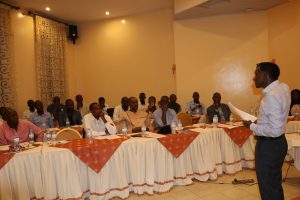 The second speaker, Dr. Denis Kazungu, a specialist in clinical psychology and psycho-pathology, spoke to help participants understand and manage the potentially devastating repercussions of the traumas they have experienced.
The second speaker, Dr. Denis Kazungu, a specialist in clinical psychology and psycho-pathology, spoke to help participants understand and manage the potentially devastating repercussions of the traumas they have experienced.
“The events that shook the country created a deep division within Burundian society. This division leads each individual to perceive himself as the sole victim, while the other group is seen as the executioner. Both sides see each other as potential aggressors, and no one tries to understand the suffering of the other,” he says.
Collective memories in Burundi can be polarized, with each group having its own version of history and its own perceptions of responsibility and victimhood.
“These differences can be exploited politically and help to perpetuate tensions and divisions within society,” he concludes.
Role of leadership…
In the process of changing mentalities, transformational leadership plays an important role, as project manager Mr. Sindayigaya points out.
“Everyone has a tendency to take credit for good deeds that have taken place, a tendency to explain the behavior of others in terms of their character or disposition”, he said.
And to insist on five solutions to the fundamental attribution error.
“Be slow to judge, think positively, avoid hasty and quick conclusions/decisions, feel the other’s need/act with patience and thus put yourself in the other’s shoes,” described Godefroid Sindayigaya.
Breaking the spiral of violence in Burundi?
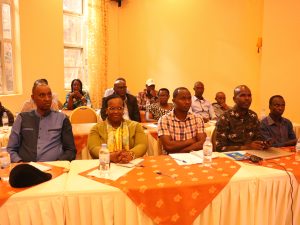 In the context of Burundi, psychologist Dr. Denis Kazungu points out that the conflict of memory refers to the different interpretations and historical narratives that fuel tensions and divisions within society.
In the context of Burundi, psychologist Dr. Denis Kazungu points out that the conflict of memory refers to the different interpretations and historical narratives that fuel tensions and divisions within society.
Acknowledging past suffering: “It is essential that all parties recognize and acknowledge the suffering and injustice suffered by all communities during periods of conflict. This can be done through symbolic gestures such as official apologies, commemorations and monuments dedicated to the victims. It’s impossible to emerge from these conflicts if we can’t overcome our suffering,” he advises.
The Kigali workshop is being run by the “Forum pour la Mémoire Vigilante” (FMV), an organization incorporated under Rwandan law, and based on the values of Remembrance, Education and Prevention. The session marked the end of the “Truth Telling, Community Dialogue and Human Right Educational Program” project. The project is funded by the International Coalition of Sites of Conscience, an American NGO founded in 1999 and the only global network of Sites of Conscience present in over 65 countries, including Rwanda.
Some pictures:
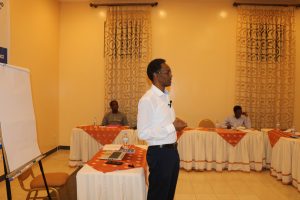
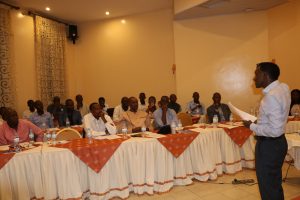
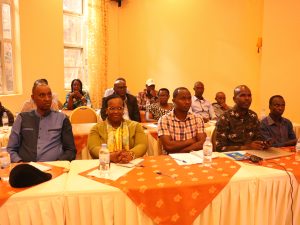
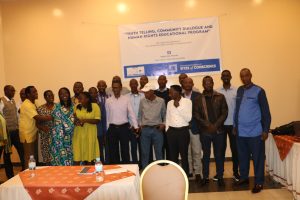
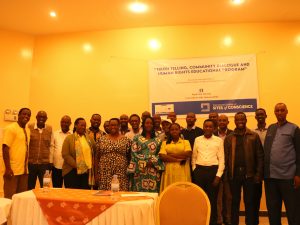
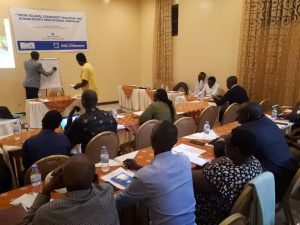
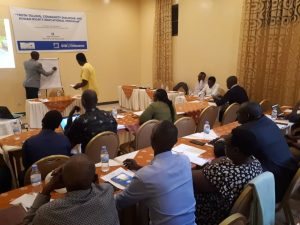
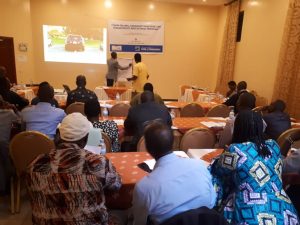
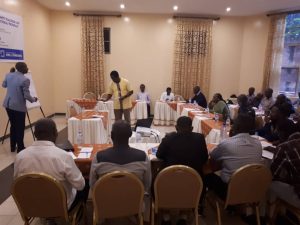
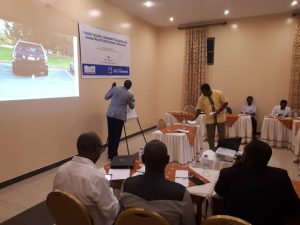
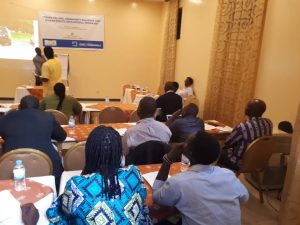

One thought on “FMV concludes its truth and community dialogue project”